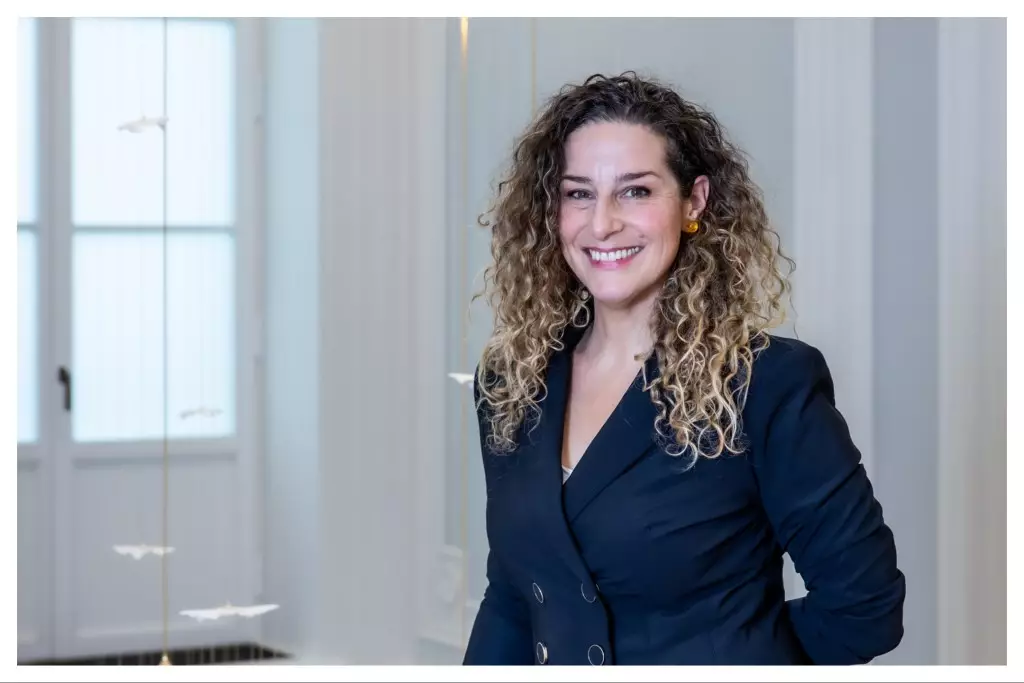The appointment of Julie-Jeanne Régnault as the new Managing Director of the European Producers Club (EPC) marks a significant turning point for the organization and its mission to champion independent production in Europe. Taking the reins from Alexandra Lebret, who dedicated an impressive 23 years to steering the EPC, Régnault’s leadership comes at a crucial time when independent producers face unprecedented challenges and opportunities within the rapidly evolving audiovisual landscape.
Régnault brings a wealth of experience that aligns seamlessly with the EPC’s goals. Having served as Secretary General at the European Film Agency Directors Association (EFAD), her extensive background in policy and advocacy will be instrumental in navigating the complexities of European regulations affecting the audiovisual sector. Under her guidance, the EPC can expect to amplify its voice more substantially in the corridors of power, influencing policies that shield the interests of independent producers.
Strategic Positioning Within the EU
One of Régnault’s first strategic maneuvers is to ensure that the EPC’s presence within European Union institutions becomes a permanent fixture through her base in Brussels—a decision that signals ambition and commitment. This physical proximity to EU decision-makers may enable more effective lobbying and collaboration, allowing the EPC to cohesively represent the concerns of its 200 member production companies spread over 35 nations.
As Europe grapples with political, cultural, and economic changes, independent producers require robust advocacy to ensure their voices are not drowned out by larger, corporate entities. Régnault’s leadership is poised to tackle these challenges head-on, pioneering initiatives that will bolster the EPC’s outreach and impact.
Vision for an Inclusive Artistic Community
Julie-Jeanne Régnault’s appointment is not merely administrative; it is a clarion call for revitalizing the collective creativity that defines European cinema and television. She expressed her excitement about joining a community that she perceives as central to Europe’s creative dynamism. This sentiment is foundational in creating a nurturing environment where innovative storytelling can flourish.
Her commitment to advocating for ambitious audiovisual policies reflects a deep understanding of the values that unify the European artistic community—freedom of creation, linguistic diversity, and cooperation. These tenets are crucial for fostering an inclusive culture that embraces the myriad voices within Europe’s independent production space.
Furthermore, Régnault’s background in European public affairs and her involvement with national film agencies will serve to strengthen collaborations that are critical for the sustainability of independent creators. With her leadership, the EPC may not just react to policy changes but proactively shape an ecosystem conducive to diverse storytelling.
A Focus on Networking and Professional Development
A pivotal element of Régnault’s vision revolves around enhancing networking opportunities and professional services for EPC members. In an industry that increasingly relies on collaboration, establishing strong connections between independent producers and larger industry stakeholders can unlock new avenues for funding, distribution, and audience engagement.
Through strategic partnerships with major industry events and associations, the EPC can elevate its profile, ensuring that the voices of independent filmmakers are front and center. This networking approach not only fosters creativity but also effectively positions independent producers as key players in the European audiovisual landscape.
An Advocate for Cultural Diversity
As she steps into her role, Régnault’s robust stance on cultural and linguistic diversity promises to resonate throughout the independent production community. Her past work has demonstrated a keen insight into how policies can shape the landscape for filmmakers, making it essential for her to continue advocating for frameworks that support this diversity.
Cultural richness is the very essence of European identity; thus, a commitment to maintaining this diversity is not merely beneficial but essential for the survival of independent storytelling. With her extensive knowledge of audiovisual regulations and her passion for creative integrity, Régnault is poised to be a formidable advocate for independent producers at every level, ensuring their narratives continue to add depth and variety to Europe’s rich cultural tapestry.
In this transformative period, the EPC, under Julie-Jeanne Régnault’s guidance, seems well-positioned to navigate the uncharted waters of contemporary media, ensuring that independent voices remain a vital part of Europe’s cultural dialogue.

